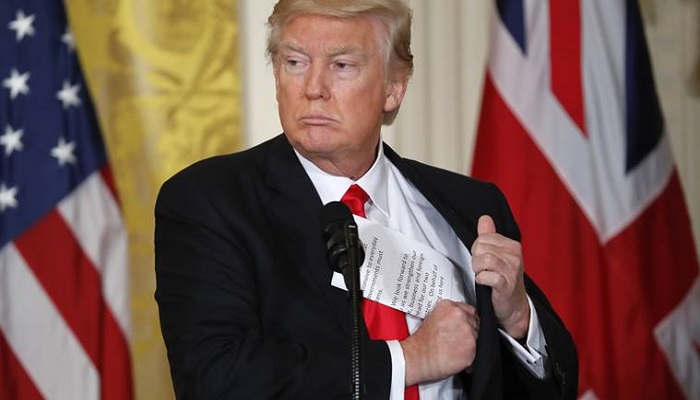
The first ever step towards Iran’s nuclear status by the U.S has come under fire. U.S. President Donald Trump took a bold step by choosing not to certify that Tehran is complying with the deal and warning he might ultimately terminate it.
Trump – who opposed the agreement between Iran and world powers, justified his decision by saying that Iran was not living up to the spirit of the accord, despite the UN nuclear watchdog repeatedly confirming that the country was complying with its obligations.
Trump’s 160 word deal does not pull the US out of the deal but pushes action to the Republican-controlled US Congress. Legislators now have a non-binding 60-day period to debate the accord and decide whether to re-impose sanctions, which would put the deal at risk.
What the move translates to:
The nuclear deal between Iran and U.S would act as the single most comprehensive and definitive tool, which, as Germany’s UN envoy, Harald Braun, put it, would “reassure the world that Iran’s nuclear programme served exclusively peaceful purposes”. Painstakingly negotiated between Iran and the P5+1 group of world powers, the deal imposed an unprecedentedly intrusive and exhaustive inspection regime on Iran’s nuclear activities in return for the lifting of international sanctions that had devastated the country’s economy, and with it the livelihood of millions of ordinary Iranians.
Trump’s decertification will not cancel out the deal. It will, however, transfer the power to determine its fate to Congress. This means that 535 lawmakers, many of whom are deeply indebted to defence contractors, corporate donors and their own fleeting political ambitions, will be given the power to trigger a chain of events with potentially devastating and unpredictable consequences. Almost overnight, US role in global security will be demoted from stakeholder to risk factor.
In the foreseeable future, the onus of proving good faith will rest squarely on the shoulders of US leaders.

Post Your Comments